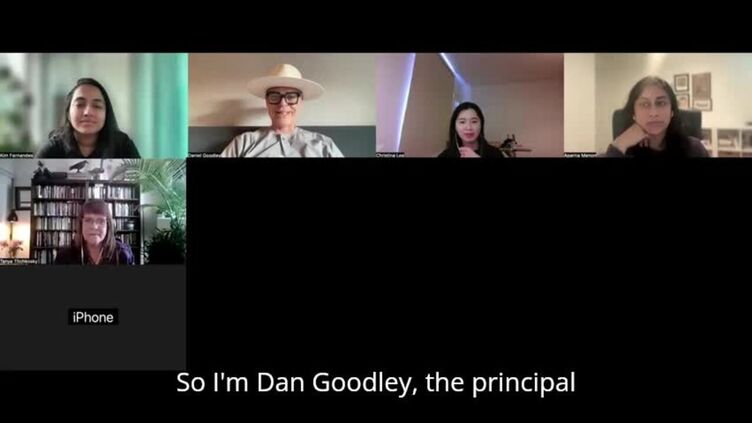Disability Matters Online Symposia June 2025 from Toronto, Canada
This is a free event held fully online via Zoom on Monday 2nd June, 2025.
This online symposium follows the conversations at the Disability Matters ââŊ Ways of Perceiving Spring Institute at Toronto on 30th May and explores how disability matters and the ways that we perceive as critical to our lives together.
Read more about Disability Matters ââŊ Ways of Perceiving.
A caption-only version of this recording is also available.
Speakers
Aparna Raghu Menon (she/her)
Aparna Raghu Menon is a Ph.D. Candidate in Public Health Sciences at the šĢ―ĮÉįĮø of Toronto. Her SSHRC-funded doctoral project draws on critical disability studies, communication studies, posthumanism and feminist frameworks to investigate the intersections of autism, health and communication amongst non-verbal autistic children and adolescents.
Abstract: In this paper, I explore whether the possibilities of autistic communication are fulfilled only by a successful completion of the communicative act or whether such possibilities exist simultaneously within the risks carried by failure-laden communication or a silent refusal to communicate. To do this, I draw on Titchkoskyâs and Michalkoâs ideas of how disability-framed-as-problem reproduces endless renderings of the problem of disability while leaving the frames completely unexamined (2017).
Kim Fernandes
Kim Fernandes is a researcher, writer and educator interested in disability, data and technology in urban India. They are currently a postdoctoral fellow in the Faculty of Information at the šĢ―ĮÉįĮø of Toronto. Fernandes holds a joint Ph.D. with Distinction in Anthropology & Interdisciplinary Studies in Human Development in 2024. Their recent work has been funded by the Social Science Research Council and the Taraknath Das Foundationâs Marion Jemmott Fellowship. Fernandes also holds an M.S.Ed. from the šĢ―ĮÉįĮø of Pennsylvania, an Ed.M. in International Education Policy from Harvard šĢ―ĮÉįĮø, and a B.S.F.S. (honors) in International Politics from Georgetown šĢ―ĮÉįĮø.
Title: Skepticism with/in/as Crip Technoscience: Disabilities and Technologies
Abstract: Where and how might we place skepticism in understanding what technology does to/for disability, and vice versa? This reflection attends to disability as cultural production through technology (assistive and otherwise) with the intention to locate both productive and difficult tensions in how we come to think of what technology is "good" for. Beginning with an attention to the assumptions that often shape the development of new technologies in the popular cultural imagination, this reflection will then move to a meditation on the role of skepticism within the praxis of crip technoscience. In asking how disabled people and communities respond to technoscientific advances, the reflection also attends to how and where (else) we might make meaning of narratives of progress.

iHuman
How we understand being âhumanâ differs between disciplines and has changed radically over time. We are living in an age marked by rapid growth in knowledge about the human body and brain, and new technologies with the potential to change them.

